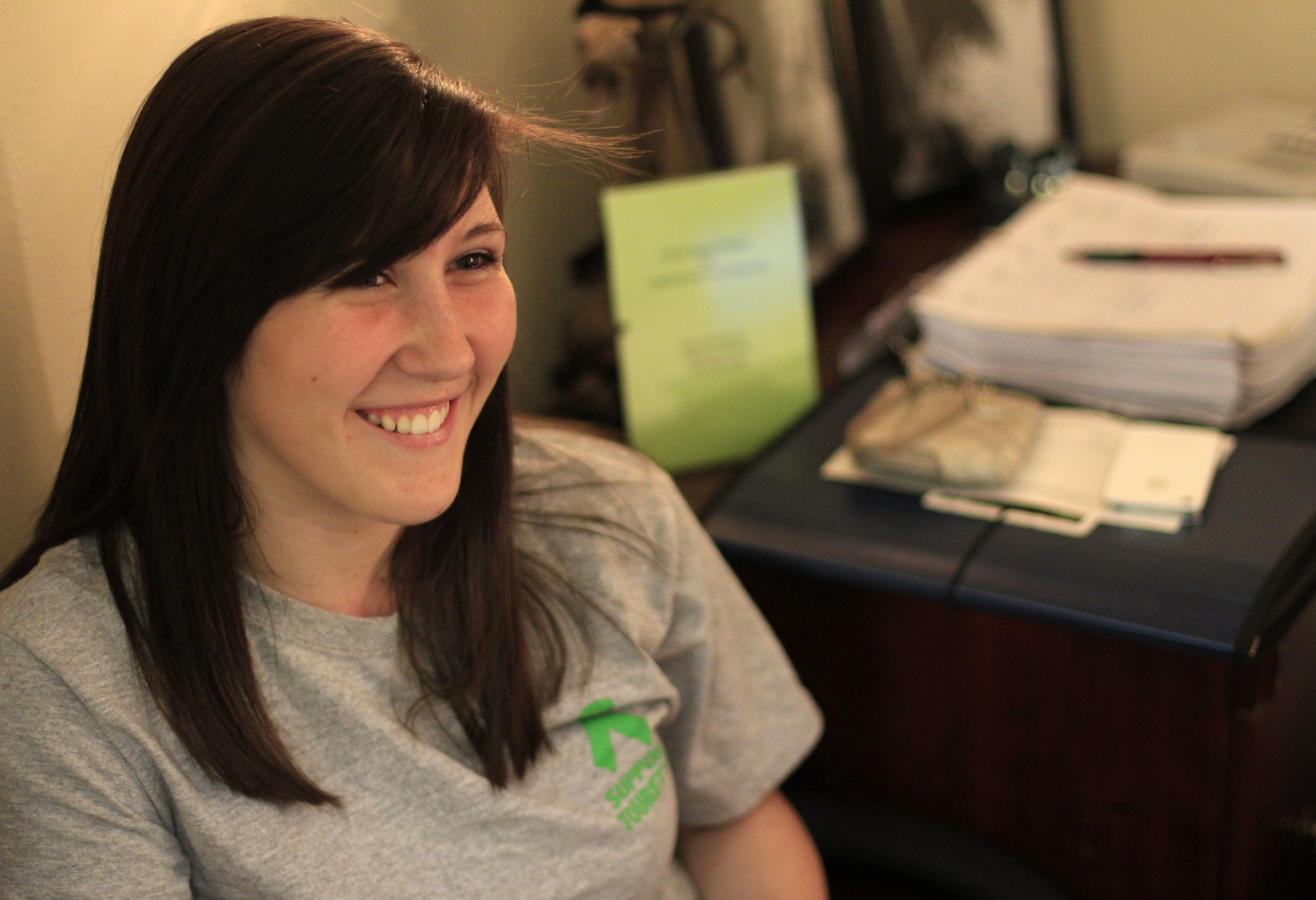SYNDROME FACTS• Tourette's is a genetic neuro-biological disorder.• People with TS have a chemical imbalance in the brain that causes involuntary tics.• Tics release tension for people with TS.• Motor tics include shrugging, blinking, stomping, twitching and nodding.• Vocal tics include sniffing, humming, repeating words and making sounds.• Mental tics include thoughts, phrases, songs and scenes that abruptly and repeatedly intrude into consciousness.• Most children begin tics between ages 5 and 8, and tics sometimes lessen with age.• Tics can be exacerbated by stress, anger, anxiety and fatigue.Source: Tourette Syndrome Association, Moriah Silvers
Start writing the Pledge of Allegiance by hand. Now tap your pinkie on the desk. Cross out and rewrite every third word (tap, tap); they don't look right. Tap while an authority figure browbeats you for the poor handwriting that's resulted from tapping. Tap. Time's almost up. Tap, tap.
Ringgold High School student Moriah Silvers, who lives with Tourette's syndrome, can write almost the entire pledge in 90 seconds. When she encourages her classmates to complete the tapping exercise, which simulates a tic and a teacher who doesn't understand TS, most struggle to get a dozen words down in a minute and a half.
Last month Moriah traveled to Washington, D.C., to complete youth ambassador training with the national Tourette Syndrome Association. Since then, she's held lectures for schools, church groups, police officers and medical students to spread awareness of and acceptance for people with TS. On Wednesday she'll meet with Georgia Gov. Nathan Deal to declare June the state's Tourette's Awareness Month.
People with TS have involuntary compulsions, or tics, to move, vocalize and even think certain things. Moriah's most prevalent tic looks like a wink, though she has others including a kicking tic, and less often she'll repeat what others say.
"Wanting to tic is like wanting to sneeze or cough or blink," she told Kym Johnson's computer class. "Just like how people with diabetes have to take their insulin shots, people with Tourette's have to tic."
If a tic is coming, it takes all of Moriah's focus to suppress it, she said, and if someone tries to talk to her while she's trying to keep a tic at bay, she won't hear a word they say.
Wearing a shirt that read, "Dude, it's not a wink! ;)," Moriah explained that developing TS is genetic, and not anyone's "fault," adding, "I was not dropped on my head as a child."
She said tics can be exacerbated by stress and that when others mock a kid with Tourette's, it just makes the child more anxious and more likely to tic.
"Just don't make fun of them, and don't make a big deal out of it," she advised.
Moriah carries a card from the TS Association to explain her condition if her tics accidentally cause a problem, like if she kicks a chair at the movie theater or has a tic in line at an amusement park. At the bottom, it reads, "Sorry if it bothers you -- it bothers me more."
She hoped to dispel one particular rumor about the disease, as well. Coprolalia, the involuntary swearing tic, is the most visible and frequently mocked tic, but it is also involuntary and embarrassing to the coprolaliac. What's more, it affects only about 10 percent of those with TS.
